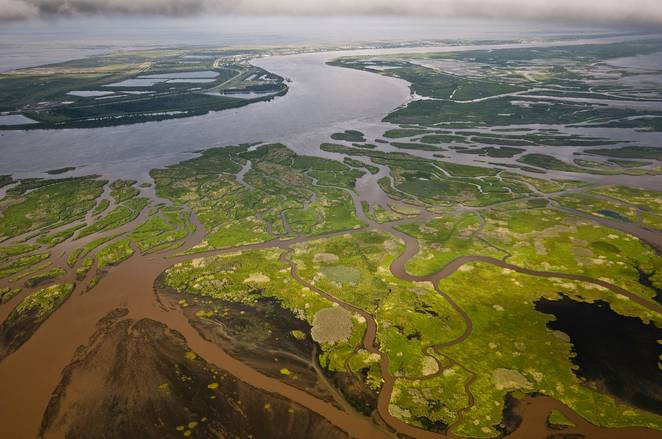The 'dead zone' on the ocean threatens the life and ecosystem of many seas
'Dead zones' are low oxygen areas on the ocean that threaten life and cause marine ecosystems to change. Currently, many oceans are in a state of oxygen scarcity, a condition similar to that of the mass extinction of marine life in 94 million years ago.
- The mysterious "circle" under the deep sea was finally decoded but the answer made the scientists worry
- Startled with the harmful effects of solar cells on the environment

The decreasing amount of oxygen can cause extinction of a range of marine organisms.(Photo: TreeHugger)
According to scientists, besides the effects of nature, people are not small agents that make the area of dead zones expand. Among them, climate change, fertilizer and wastewater leave the most serious consequences.
Specifically, industrial and fertilizer wastes in the agricultural sector cause the number of giant algae to die, they will decompose and reduce the amount of oxygen in the seawater. This could kill fish and many other sea creatures, to ensure the life of many species is forced to move to other waters. This situation may result in ecosystems in some unbalanced areas.
The largest dead zone in the world today, located in the northern Gulf of Mexico, near the Mississippi River area, is at an alarming level and tends to expand. In addition, the Baltic Sea is also one of the worst affected areas.

Dead waters on the day of port expansion at sea can lead to many dangerous consequences.(Photo: CBS News)
Climate change is a significant factor causing the "living" situation in many dead zones in the oceans. This phenomenon causes soil erosion in large quantities, adding nutrients to the sea. But according to researchers, this process is expected to take tens of thousands of years.
In addition, rising temperatures and ocean acidification by absorbing increased levels of CO2 in the atmosphere can also threaten marine life.

Too low oxygen in the seawater has killed many fish.(Photo: Maritime Cyprus)
The Oceanic Anoxic Event-2 (OAE-2) event caused an extinction event of about 27% of marine invertebrates around 94 million years ago, according to researchers at the current phenomenon. They also issued a warning, if human-induced oxygen depletion is similar to that in the early stages of OAE-2, in the next 102 to 344 years the loss of oxygen at the seabed will increase double.
Before the situation of local oxygen depletion in the oceans is tending to expand according to the level of carbon emissions, if people do not attempt to cut greenhouse gas emissions, limit the use of fertilizers and properly handle In the process of waste water, marine life will be threatened, many marine ecosystems will change.
You should read it
- ★ Discovered 'tattoo' lobster Pepsi logo and anxiety about the sea future
- ★ Fish are encroaching on the sea kelp species
- ★ Decipher the mystery of the extinction that destroyed 96% of marine life
- ★ Acid in the Arctic Ocean increases rapidly with climate change
- ★ Air pollution can kill 60,000 people by 2030